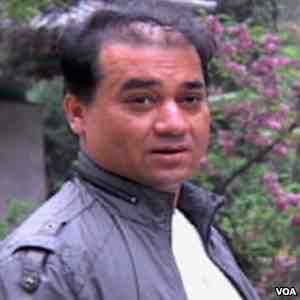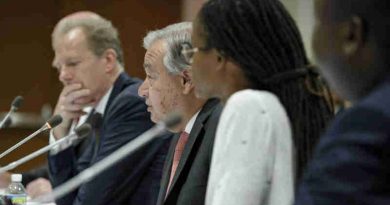Will China Release Uighur Professor Ilham Tohti?

According to human rights organization Amnesty International, 400 academics from across the world have called on China’s President Xi Jinping to immediately release Uighur Professor Ilham Tohti, on the second anniversary of the day he was taken into custody by authorities.
In an open letter dated January 15 to President Xi, scholars from academic institutions – including Harvard University, The University of Hong Kong, and the University of Oxford, write that the immediate and unconditional release of Ilham Tohti would be “an important way of demonstrating China’s commitment to academic freedom”.
[ Journalists Covering Pu Zhiqiang Trial Attacked in China ]
According to Amnesty, Ilham Tohti is serving a life sentence solely for expressing ideas that fell well within the boundaries of freedom of expression as an academic and writer.
He was taken away from his home in Beijing on 15 January 2014 and found guilty of “separatism” on 23 September 2014, after a politicized trial that according to Amnesty was “marred by numerous procedural irregularities.”
“Ilham Tohti is a prisoner of conscience, who is being cruelly punished for peacefully challenging the Chinese government’s policies towards ethnic minorities,” said Nicholas Bequelin, East Asia Director at Amnesty International.
“That so many academics from across the world have united to call for Ilham Tohti’s immediate release underlines the gross sense of injustice people feel at his continued imprisonment. President Xi Jinping should heed the scholars’ calls.”
[ How India Abuses Children’s Right to Education ]
Perry Link, a professor at the University of California at Riverside and a renowned expert on human rights and politics in China, said: “While much of the world is worrying about ‘radical Islamic terrorists,’ the Chinese government has given a lifetime sentence to an un-radical Muslim non-terrorist. Why would it do this? Is the purpose to intimidate an entire ethnic group, the vast majority of whom are themselves not radical and far from terrorists? Who, exactly, is terrorizing in this case?”
[ Is Islam the Common Enemy of All Religions? ]
In the letter, the academics state that Ilham Tohti’s release would demonstrate the Chinese authorities “renewed dedication towards increasing mutual understanding among ethnicities and decreasing ethnic tension”.
Chinese authorities have tightened their already onerous restrictions on the practice of Islam in the Xinjiang Uighur Autonomous Region (XUAR). Uighurs’ expression of dissent is often portrayed as religious extremism, international terrorism or national security crimes.
[ UK May Block Donald Trump’s Entry into the Country ]
Tohti’s trial in 2014 came amid a wave of violent attacks and suppression of protests in the XUAR. Following an earlier wave of violence in 2009 the then UN High Commissioner for Human Rights, Navi Pillay, urged authorities to “reflect on the underlying causes of such incidents, which include discrimination and the failure to protect minority rights.”
According to Amnesty, Ilham Tohti was openly critical of government policies in the XUAR, where Uighurs face widespread discrimination in employment, education, housing, and curtailed religious freedom as well as political marginalization.
He has consistently opposed violence and has worked peacefully to build bridges between ethnic communities in accordance with Chinese laws.
Selected portions of Ilham Tohti’s university lectures, which were recorded by a CCTV camera installed in his lecture hall, were presented in the trial and broadcast afterwards on national television, in an attempt to portray him as a separatist who had incited ethnic tension.
Other evidence against Ilham Tohti came from statements by seven former students, who were arrested along with him. There is strong reason to believe that the students gave their statements under coercion. They were sentenced to between three and eight years’ imprisonment on the same charges as Ilham Tohti in December 2014.
Amnesty reports that Ilham Tohti was held incommunicado and denied access to his lawyers for nearly six months at the start of his pre-trial detention. According to his lawyers, he was denied food for 10 days and had his feet shackled for more than 20 days.
Photo courtesy: Wikipedia




